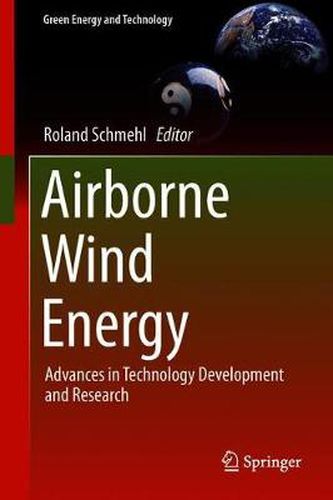Readings Newsletter
Become a Readings Member to make your shopping experience even easier.
Sign in or sign up for free!
You’re not far away from qualifying for FREE standard shipping within Australia
You’ve qualified for FREE standard shipping within Australia
The cart is loading…






This title is printed to order. This book may have been self-published. If so, we cannot guarantee the quality of the content. In the main most books will have gone through the editing process however some may not. We therefore suggest that you be aware of this before ordering this book. If in doubt check either the author or publisher’s details as we are unable to accept any returns unless they are faulty. Please contact us if you have any questions.
This book provides in-depth coverage of the latest research and development activities concerning innovative wind energy technologies intended to replace fossil fuels on an economical basis. A characteristic feature of the various conversion concepts discussed is the use of tethered flying devices to substantially reduce the material consumption per installed unit and to access wind energy at higher altitudes, where the wind is more consistent.
The introductory chapter describes the emergence and economic dimension of airborne wind energy. Focusing on Fundamentals, Modeling & Simulation , Part I includes six contributions that describe quasi-steady as well as dynamic models and simulations of airborne wind energy systems or individual components. Shifting the spotlight to Control, Optimization & Flight State Measurement , Part II combines one chapter on measurement techniques with five chapters on control of kite and ground stations, and two chapters on optimization. Part III on Concept Design & Analysis includes three chapters that present and analyze novel harvesting concepts as well as two chapters on system component design. Part IV, which centers on Implemented Concepts , presents five chapters on established system concepts and one chapter about a subsystem for automatic launching and landing of kites. In closing, Part V focuses with four chapters on Technology Deployment related to market and financing strategies, as well as on regulation and the environment.
The book builds on the success of the first volume Airborne Wind Energy (Springer, 2013), and offers a self-contained reference guide for researchers, scientists, professionals and students. The respective chapters were contributed by a broad variety of authors: academics, practicing engineers and inventors, all of whom are experts in their respective fields.
$9.00 standard shipping within Australia
FREE standard shipping within Australia for orders over $100.00
Express & International shipping calculated at checkout
This title is printed to order. This book may have been self-published. If so, we cannot guarantee the quality of the content. In the main most books will have gone through the editing process however some may not. We therefore suggest that you be aware of this before ordering this book. If in doubt check either the author or publisher’s details as we are unable to accept any returns unless they are faulty. Please contact us if you have any questions.
This book provides in-depth coverage of the latest research and development activities concerning innovative wind energy technologies intended to replace fossil fuels on an economical basis. A characteristic feature of the various conversion concepts discussed is the use of tethered flying devices to substantially reduce the material consumption per installed unit and to access wind energy at higher altitudes, where the wind is more consistent.
The introductory chapter describes the emergence and economic dimension of airborne wind energy. Focusing on Fundamentals, Modeling & Simulation , Part I includes six contributions that describe quasi-steady as well as dynamic models and simulations of airborne wind energy systems or individual components. Shifting the spotlight to Control, Optimization & Flight State Measurement , Part II combines one chapter on measurement techniques with five chapters on control of kite and ground stations, and two chapters on optimization. Part III on Concept Design & Analysis includes three chapters that present and analyze novel harvesting concepts as well as two chapters on system component design. Part IV, which centers on Implemented Concepts , presents five chapters on established system concepts and one chapter about a subsystem for automatic launching and landing of kites. In closing, Part V focuses with four chapters on Technology Deployment related to market and financing strategies, as well as on regulation and the environment.
The book builds on the success of the first volume Airborne Wind Energy (Springer, 2013), and offers a self-contained reference guide for researchers, scientists, professionals and students. The respective chapters were contributed by a broad variety of authors: academics, practicing engineers and inventors, all of whom are experts in their respective fields.